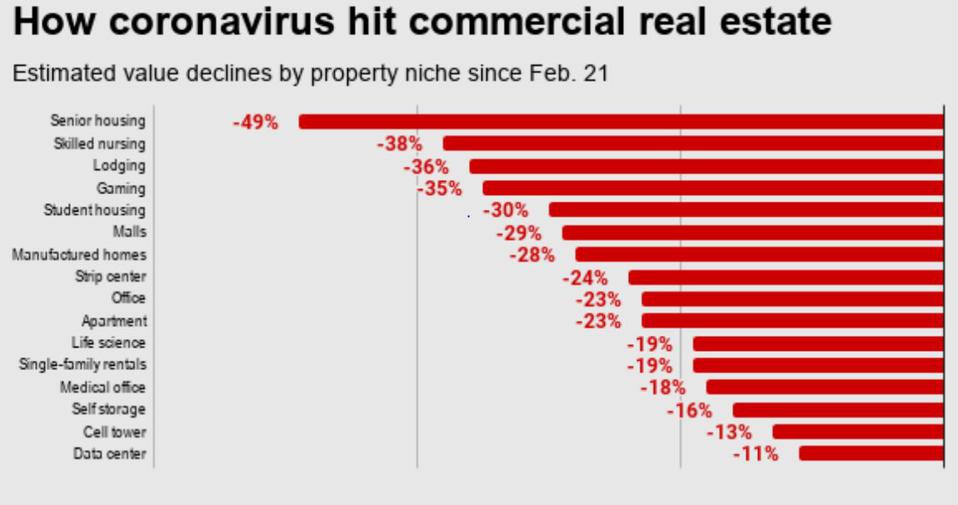Published by Forbes.com | May 11, 2022
The decrease in value of commercial property has forced many owners to restructure their debt.
The COVID-19 pandemic has had a dramatic impact on commercial real estate values, and in some cases resulted in property no longer being able to support the debt with which it is encumbered. The decrease in value of commercial property has forced many owners to restructure their debt. However, the resulting forgiveness of a portion of the debt does not automatically result in federal taxable income. Favorable rules, which were put into place for taxable years after 1992, could allow the cancellation of debt income to be deferred for federal income tax purposes even if the taxpayer is not in bankruptcy or insolvent—as is normally the case.
Taxable income is closely linked to when a taxpayer receives economic benefit. So it makes sense that if you previously had a $100,000 bank loan and the bank decreases the principal balance to $80,000, then your $20,000 economic benefit should be included in taxable income. The decrease in debt principal is often referred to as a discharge of indebtedness or cancellation of indebtedness. Under certain circumstances, the Internal Revenue Code allows for income related to the cancellation of indebtedness to be excluded from a taxpayer’s income in instances of a title 11 (bankruptcy) case or where the taxpayer is insolvent. Insolvency is defined as the excess of the liabilities over the fair market value of assets. The ability to claim insolvency at the entity level is limited to C and S corporations. For partnerships, the most common entity type for real estate holdings, insolvency must be measured at the individual partner level. This can pose an issue because, often times, the individual partners are solvent (i.e., not insolvent).
However, being insolvent or in bankruptcy is not the only way that taxpayers involved in real estate can exclude cancellation of debt income. Provided the taxpayer is not a C corporation, cancellation of debt income can be excluded if the debt discharged is considered qualified real property business indebtedness (QRPBI). QRPBI is debt that is incurred or assumed by the taxpayer in connection with real property used in a trade or business and is secured by such property. For property acquired on or after January 1, 1993, QRPBI includes debt used to acquire, construct, reconstruct, or substantially improve real property. Whether a taxpayer is engaged in a trade or business is not always an easy question to answer and rental arrangements utilizing a triple net lease need to be carefully reviewed to ensure they qualify as a trade or business.
As always, there is a catch. The IRS is not going to allow an exclusion from taxable income out of the kindness of its heart. Instead, the Internal Revenue Code essentially allows a swap; in exchange for an exclusion of cancellation of debt income relating to QRPBI that is not due to insolvency or bankruptcy, the rules allow a taxpayer to elect to reduce the tax basis of the taxpayer’s depreciable real property under section 108(b)(5). The amount of the exclusion and basis reduction is the excess of the outstanding principal amount of the debt less the FMV of the business real property immediately before discharge. The FMV of the property is reduced by any other qualified real property debt secured by the property.


